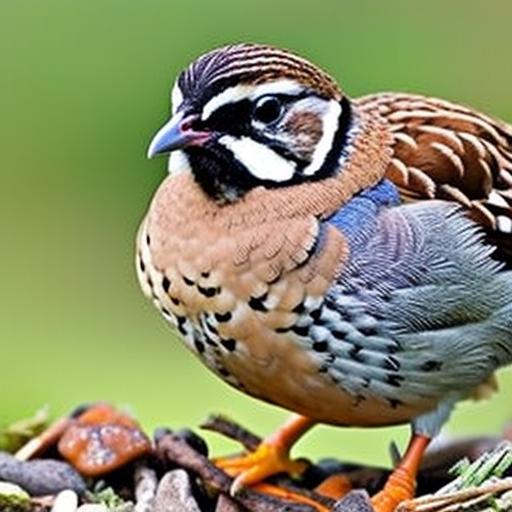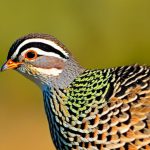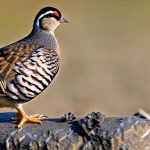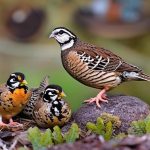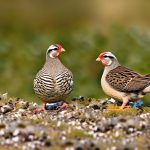When it comes to housing and shelter for animals, it is important to provide a safe and comfortable environment that meets their specific needs. For small animals such as hamsters, gerbils, and mice, a cage with plenty of space to move around, as well as hiding spots and toys for enrichment, is essential. It is important to choose a cage that is escape-proof and easy to clean, with proper ventilation to prevent respiratory issues. For larger animals such as rabbits and guinea pigs, a spacious hutch or enclosure with room to exercise and explore is necessary. It is important to provide bedding material such as hay or wood shavings for burrowing and nesting, as well as access to fresh water and a balanced diet.
In the case of reptiles and amphibians, it is important to provide a habitat that mimics their natural environment as closely as possible. This may include a terrarium with appropriate substrate, temperature and humidity control, hiding spots, and UVB lighting for proper digestion of calcium. For birds, a spacious cage with room to fly and exercise is essential, along with perches, toys, and access to fresh food and water. It is important to regularly clean and disinfect the cage or enclosure to prevent the buildup of bacteria and parasites. Overall, providing a suitable housing and shelter for animals is crucial for their physical and mental well-being.
Key Takeaways
- Providing a safe and comfortable shelter is essential for the well-being of your pet.
- A balanced and nutritious diet is crucial for the overall health and longevity of your pet.
- Regular veterinary check-ups and vaccinations are important for maintaining your pet’s health and wellness.
- Responsible breeding practices are necessary to ensure the health and genetic diversity of the species.
- Proper handling and taming techniques are important for building trust and reducing stress in your pet.
- Implementing predator protection measures is crucial for keeping your pet safe from potential threats.
- Socialization and positive interaction with humans and other animals are important for the mental and emotional well-being of your pet.
Feeding and Nutrition
Feeding and nutrition are crucial aspects of animal care that directly impact their health and well-being. It is important to provide a balanced diet that meets the specific nutritional needs of each species. For small animals such as rabbits, guinea pigs, and hamsters, a diet high in fiber is essential for proper digestion and dental health. This may include hay, fresh vegetables, and a small amount of pellets. It is important to avoid feeding them foods that are high in sugar or fat, as this can lead to obesity and other health issues.
For reptiles and amphibians, it is important to provide a diet that includes a variety of insects, fruits, and vegetables to ensure they receive the necessary vitamins and minerals. It is important to research the specific dietary requirements of each species to ensure they are receiving a balanced diet. For birds, a diet that includes a variety of seeds, pellets, fruits, and vegetables is essential for their overall health. It is important to avoid feeding them foods that are high in salt or sugar, as this can lead to nutritional deficiencies and health issues. Overall, providing a balanced and nutritious diet is essential for the overall health and well-being of animals.
Health and Wellness
Maintaining the health and wellness of animals is a top priority for pet owners. Regular veterinary check-ups are essential to ensure that animals are healthy and free from any underlying health issues. It is important to monitor their behavior and appearance for any signs of illness or distress, such as changes in appetite, energy levels, or appearance of the skin or fur. Providing regular exercise and mental stimulation is also important for their overall well-being.
It is important to provide a clean and hygienic environment for animals to prevent the spread of diseases and parasites. This may include regular cleaning of their cage or enclosure, providing fresh water and food daily, and grooming them regularly to prevent matting or overgrowth of nails. It is important to research the specific health needs of each species to ensure they receive the appropriate care. Overall, maintaining the health and wellness of animals requires regular veterinary care, a clean environment, and providing them with regular exercise and mental stimulation.
Breeding and Reproduction
Breeding and reproduction are natural behaviors for many animals, but it is important for pet owners to carefully consider the implications of breeding their pets. Before deciding to breed animals, it is important to research the specific breeding requirements of each species and ensure that they are in good health and free from any genetic disorders. It is important to provide a suitable environment for breeding, such as a nesting box or enclosure with privacy and security.
It is important to carefully consider the responsibility of caring for the offspring and finding suitable homes for them once they are old enough to be rehomed. Overpopulation can be a serious issue in many animal species, so it is important to spay or neuter pets if they are not intended for breeding. It is also important to consider the potential risks associated with breeding, such as complications during pregnancy or birth. Overall, breeding should be approached with caution and responsibility to ensure the health and well-being of both the parents and offspring.
Handling and Taming
Handling and taming animals requires patience, trust-building, and understanding of their behavior. It is important to approach animals calmly and gently to build trust and avoid causing them stress or fear. For small animals such as hamsters, gerbils, and rabbits, it is important to handle them regularly from a young age to help them become accustomed to human interaction. It is important to approach them slowly and allow them to come to you on their own terms.
For reptiles and amphibians, it is important to handle them gently and avoid sudden movements that may startle them. It is important to research the specific handling requirements of each species to ensure their safety and well-being. For birds, it is important to approach them calmly and avoid making sudden movements or loud noises that may startle them. It is important to build trust gradually by spending time near their cage or enclosure before attempting to handle them.
Overall, handling and taming animals requires patience, trust-building, and understanding of their behavior. It is important to approach them calmly and gently to build trust and avoid causing them stress or fear.
Predator Protection

Protecting animals from predators is essential for their safety and well-being. For small animals such as rabbits, guinea pigs, and hamsters, it is important to provide a secure enclosure with a solid bottom to prevent predators from digging underneath. It is also important to provide hiding spots or shelters within their enclosure where they can seek refuge if they feel threatened.
For reptiles and amphibians, it is important to provide a secure terrarium with a locking lid to prevent escape or intrusion by predators. It is also important to research the specific predators that may pose a threat to each species in order to provide appropriate protection. For birds, it is important to provide a secure cage or aviary with strong bars to prevent predators from gaining access.
Overall, protecting animals from predators requires providing a secure enclosure or habitat that prevents escape or intrusion by predators.
Socialization and Interaction
Socialization and interaction are important aspects of animal care that contribute to their overall well-being. For small animals such as rabbits, guinea pigs, and hamsters, it is important to provide opportunities for social interaction with other animals of the same species. This may include providing them with a suitable companion or allowing supervised playtime with other animals.
For reptiles and amphibians, it is important to provide opportunities for social interaction with their owners through gentle handling and regular time outside of their enclosure. For birds, it is important to provide opportunities for social interaction with their owners through gentle handling, training, and regular time outside of their cage.
Overall, socialization and interaction are important aspects of animal care that contribute to their overall well-being. It is important to provide opportunities for social interaction with other animals of the same species as well as with their owners through gentle handling and regular time outside of their enclosure or cage.
If you’re interested in learning more about keeping quail birds, you might also want to check out this informative article on what vegetables do quails eat. It provides valuable insights into the dietary needs of quails and how to ensure they are getting the right nutrition.
FAQs
What are quail birds?
Quail birds are small game birds that belong to the family Phasianidae. They are known for their small size, plump bodies, and distinctive calls.
What do quail birds eat?
Quail birds are omnivorous and their diet consists of a variety of foods including seeds, insects, fruits, and vegetables. It is important to provide them with a balanced diet to ensure their health and well-being.
How do you house quail birds?
Quail birds can be housed in a variety of enclosures including cages, aviaries, or coops. It is important to provide them with enough space to move around and access to fresh air and sunlight.
What are the key considerations for keeping quail birds?
Key considerations for keeping quail birds include providing them with a suitable diet, clean water, proper housing, and protection from predators. It is also important to monitor their health and provide them with regular veterinary care.
How do you breed quail birds?
Breeding quail birds involves providing them with a suitable nesting area, proper nutrition, and a conducive environment for mating. It is important to monitor the breeding process and provide care for the eggs and chicks.
What are the common health issues for quail birds?
Common health issues for quail birds include respiratory infections, parasites, and nutritional deficiencies. It is important to monitor their health and seek veterinary care if any issues arise.
Meet Walter, the feathered-friend fanatic of Florida! Nestled in the sunshine state, Walter struts through life with his feathered companions, clucking his way to happiness. With a coop that’s fancier than a five-star hotel, he’s the Don Juan of the chicken world. When he’s not teaching his hens to do the cha-cha, you’ll find him in a heated debate with his prized rooster, Sir Clucks-a-Lot. Walter’s poultry passion is no yolk; he’s the sunny-side-up guy you never knew you needed in your flock of friends!

